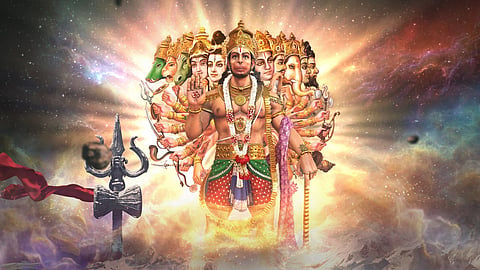Bada Mangal, A Unique Festival That Nurtures And Fosters Hindu-Muslim Unity
LUCKNOW || Beginning today, for a month Lucknow will be immersed in festivities, singing the praise of the venerated Hindu God, Lord Hanuman as the holy Bada Mangal beings.
According to the popular belief, Begum Janab-e-Alia, wife of the third Nawab of Oudh - Shuja-ud-Daulah (1753-1775 A.D.), dreamt of a divine presence commanding her to build a temple honoring Lord Hanuman, the most trusted and faithful companion of Lord Rama.
The dream pointed the Nawab’s wife to a specific site where an idol of Lord Hanuman was buried. Accordingly, the begum ordered the excavation of the site and when the idol was actually found, she made arrangements for transporting it back to Lucknow on an elephant.
However, the elephant stopped in its tracks after some distance and refused to budge. The begum inferred this as another divine omen and ordered the erection of a temple at this spot-which is present day Aliganj.
Since those times, every year, people congregate at this oldest of Hanuman temples in Lucknow in large numbers on the four Tuesdays of Jyestha Month (which falls between May and June in the Hindu calendar). It is widely believed that Lord Hanuman will answer all prayers during this period.
People from all around the state congregate and visit the famous Aliganj Hanuman Temple and also organize piyaaus and sabeels (water camps) all across the city, for the masses.The spirit and fervour of this festival transcends religious boundaries.
The Crescent and Star seen on the temple tower is documented to have been installed after the 'punar uddharan' of the temple done during the time of the Begam. Begum Janab-e-Aliya was so devoted to the Lord Hanuman that her son Saadat Ali Khan was named as Manglu, Mangal being the day attributed to the worship of Lord Hanuman.
May this unique festival, fostering the spirit oneness and unity bind us all, always.
— Mohammad Haider
(The author is a Lucknow-based corporate lawyer)

